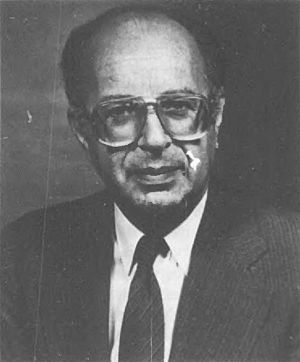Richard Schifter facts for kids
Quick facts for kids
Richard Schifter
|
|
|---|---|
 |
|
| Assistant Secretary of State for Democracy, Human Rights, and Labor | |
| In office October 31, 1985 – April 3, 1992 |
|
| President | Ronald Reagan George H. W. Bush |
| Preceded by | Elliott Abrams |
| Succeeded by | Patricia Diaz Dennis |
| Personal details | |
| Born | July 31, 1923 Vienna, Austria |
| Died | October 4, 2020 (aged 97) |
| Alma mater | City College of New York (BA) Yale University (LL.B) |
| Military service | |
| Branch/service | |
| Unit | Ritchie Boys |
| Battles/wars | World War II |
Richard Schifter (July 31, 1923 – October 4, 2020) was an American lawyer and diplomat. He was born in Austria. Schifter is best known for his work as the Assistant Secretary of State for Human Rights and Humanitarian Affairs. He held this important role from 1985 to 1992. In this job, he helped the United States government promote human rights around the world.
Contents
Early Life and Education
Richard Schifter was born in Vienna, Austria, on July 31, 1923. His family was Jewish and originally from Poland. When he was young, Nazi Germany took control of Austria in an event called the Anschluss. Because of this, his family wanted to move to the United States.
Richard was the only one in his family who could get a special travel permit, called a visa. His parents were from Poland, and their country had a very long waiting list for visas. So, Richard came to the United States by himself in December 1938. He was 15 years old.
In the U.S., he went to the City College of New York. He earned a Bachelor of Arts degree from there in 1943. Later, he studied law at Yale Law School, starting in 1948. He finished his law degree in 1951.
Military Service in World War II
Schifter joined the United States Army in 1943 during World War II. He became part of a special group called the Ritchie Boys. This unit included many young Jewish refugees from Germany. The U.S. Army trained them in how to understand and influence enemy thinking, which is sometimes called psychological warfare.
He was part of the D-Day landings in France. He worked in intelligence, gathering important information on the battlefield. After a major battle called the Battle of the Bulge, he was sent to a city in Germany called Aachen. His job was to talk to the people living there. This helped him learn about daily life under the Nazi government.
After the war, Richard searched for his family. Sadly, he found out that all of them had been killed during the the Holocaust. He left the Army in 1946. However, he stayed in Germany and worked for the U.S. military government until 1948.
Career in Law and Diplomacy
After finishing law school, Richard Schifter became a lawyer. He worked for a law firm in New York City. He became a leading expert in federal Indian law. This means he worked on legal issues involving Native American tribes and the U.S. government.
He became a main lawyer for the Oglala Sioux Tribe of the Pine Ridge Reservation. He helped them with their many disagreements with the Federal government of the United States. He worked as a lawyer until the 1980s. He also served on a special group that advised the President on American Indian affairs from 1966 to 1967.
Working for Human Rights at the United Nations
Richard Schifter also had an important career in diplomacy. From 1981 to 1982, he represented the U.S. at a UNESCO committee. He also served as a representative for the U.S. at the United Nations Commission on Human Rights from 1981 to 1982. From 1983 to 1985, he was the main U.S. representative to this commission.
He also served as a Deputy U.S. Representative to the United Nations Security Council. This was a very high-ranking position, similar to an Ambassador. He held this role from 1984 to 1985.
Assistant Secretary of State
In 1985, President of the United States Ronald Reagan chose Richard Schifter for a very important job. He was nominated to be the Assistant Secretary of State for Human Rights and Humanitarian Affairs. After the U.S. Senate approved him, Schifter started this job on October 31, 1985. He continued in this role until April 3, 1992.
After Bill Clinton became president, Schifter was appointed as a special assistant to the United States National Security Council. He worked in this position until 2001.
After leaving government work in 2001, Schifter continued to be involved in international relations. He led organizations focused on Jewish international relations and promoting democracy in Southeastern Europe. He also served as a trustee for an institute that promotes understanding between Christians and Jews.
Personal Life
Richard Schifter passed away on October 4, 2020, at the age of 97.
See also
 In Spanish: Richard Schifter para niños
In Spanish: Richard Schifter para niños

